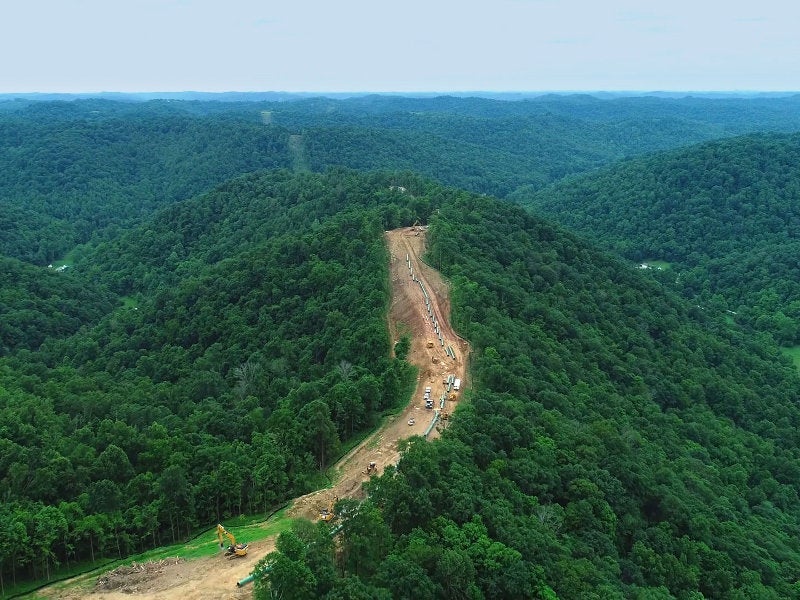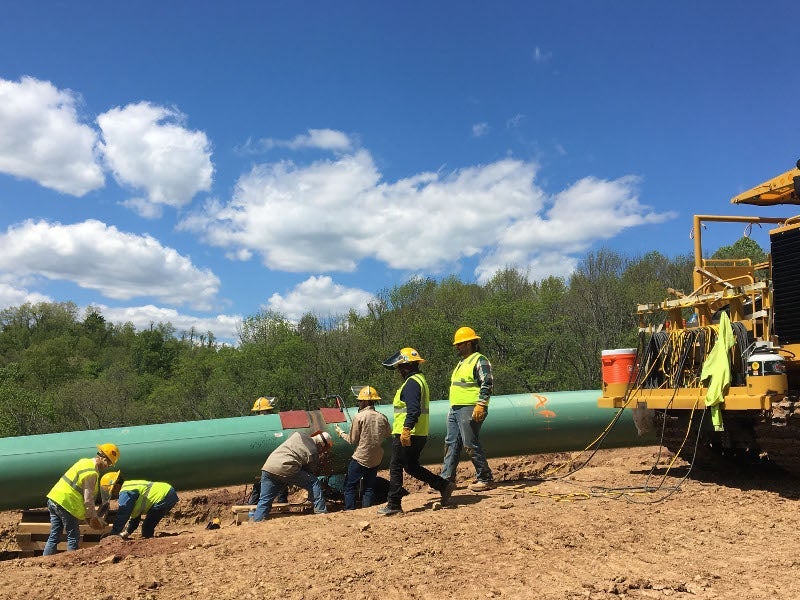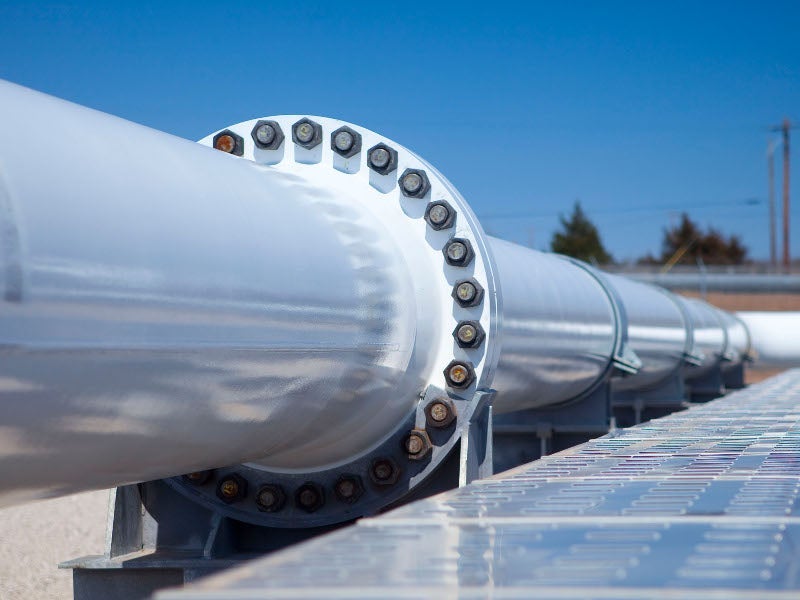Mountaineer Xpress (MXP) project involved the construction of a 274km-long natural gas pipeline between Marshall County and Wayne County in West Virginia, US. It is intended to address the growing transportation demand for Utica and Marcellus Shale natural gas.
The $2.1bn pipeline was developed by TransCanada as part of the Columbia Gas Transmission network, which was acquired by the company in July 2016. The project was accepted for pre-filing by the Federal Energy Regulatory Commission (FERC) in September 2015.
Columbia Gas Transmission filed an application to build and operate the Mountaineer XPress project in April 2016 and received FERC approval in December 2017. The West Virginia Department of Environmental Protection (WVDEP) approved the construction stormwater permit for the project in January 2018.
Pipeline construction started in early-2018 and commissioning was completed in March 2019. It is capable of transporting 2.7 billion cubic feet of natural gas per day (bcf/d) from sources in West Virginia, Ohio and Pennsylvania to the TCO Pool market along the Columbia Gas Transmission system.
It interconnects with TransCanada’s Leach Xpress pipeline on the Columbia Gas Transmission network.
Mountaineer Xpress pipeline project route details
The MXP natural gas pipeline project involved the construction of 264.7km of 36in-diameter MXP-100 pipeline from Marshall County to Cabell County, through Doddridge, Ritchie, Calhoun, Wirt, Roane, Jackson, Mason and Putnam counties.
A total of 9.65km of 24in-diameter MXP-200 pipeline was constructed in Doddridge County, covering an area of 3,648 acres.
A 90m-long, 10in-diameter pipeline section built in the Ripley regulator station connects Columbia Gas’ existing X59M1 pipeline to the MXP-100 pipeline in Jackson county.
Two sections of the existing 643.7m-long, 30in-diameter pipeline in Cabell County were replaced with a new pipeline, which connects SM-80 and SM80 loop pipelines in Cabell and Wayne counties before terminating at the Ceredo compressor station in Wayne county.
Infrastructure for Mountaineer Xpress project
The project, covering a total area of 3,648 acres, also included construction of three greenfield compressor stations, as well as upgrades to three existing Columbia compressor stations to supply the country’s domestically produced natural gas.
The compressor stations, named Sherwood, White Oak and Mount Olive, were built in Doddridge, Calhoun and Jackson counties respectively. Each station is equipped with three gas-fired compressor units.
The Sherwood compressor and regulator station is equipped with four natural gas-fired compressor units, which produce a total power of 47,000 ISO-hp. The White Oak station consists of two natural gas-fired compressor units with a combined capacity of 44,800 ISO-hp, while the Mount Olive station comprises three natural gas-fired compressor units that together produce 61,500 ISO-hp.
Three upgraded compressor stations, named Lone Oak, Ceredo and Elk River are located in Marshall, Wayne, and Kanawha counties in West Virginia, respectively.
Both Lone Oak and Elk River stations are installed with a new 15,900 ISO-hp natural gas-fired compressor unit each, while the Ceredo station is fitted with two new compressor units, one natural gas-fired unit and one electric motor-driven unit.
Two regulating stations were also built in Jackson and Cabell as part of the project.
Contractors involved
Burns & McDonnell provided support for the preparation of the environmental impact statement (EIS) for the Mountaineer Xpress project.
Welded Construction installed 30.5km of 36in pipeline in Wetzel and Marshall counties, while Henkels & McCoy was contracted to build warehouses in Jackson and Cabell counties. ProFoam was selected to supply foam breakers for the project.
Associated Pipe Line Contractors, Price Gregory International and Henkels & McCoy also took part in the pipeline construction.
Mountaineer Xpress pipeline project benefits
The Mountaineer XPress project generated significant tax revenues for the federal, state and local authorities throughout construction and is expected to deliver up to $2bn in economic benefits to the local economy.
The project generated approximately 9,000 jobs in West Virginia during the construction phase. It will improve the supply of domestically produced natural gas in Virginia and West Virginia and reduce the country’s dependence on foreign fuel.






